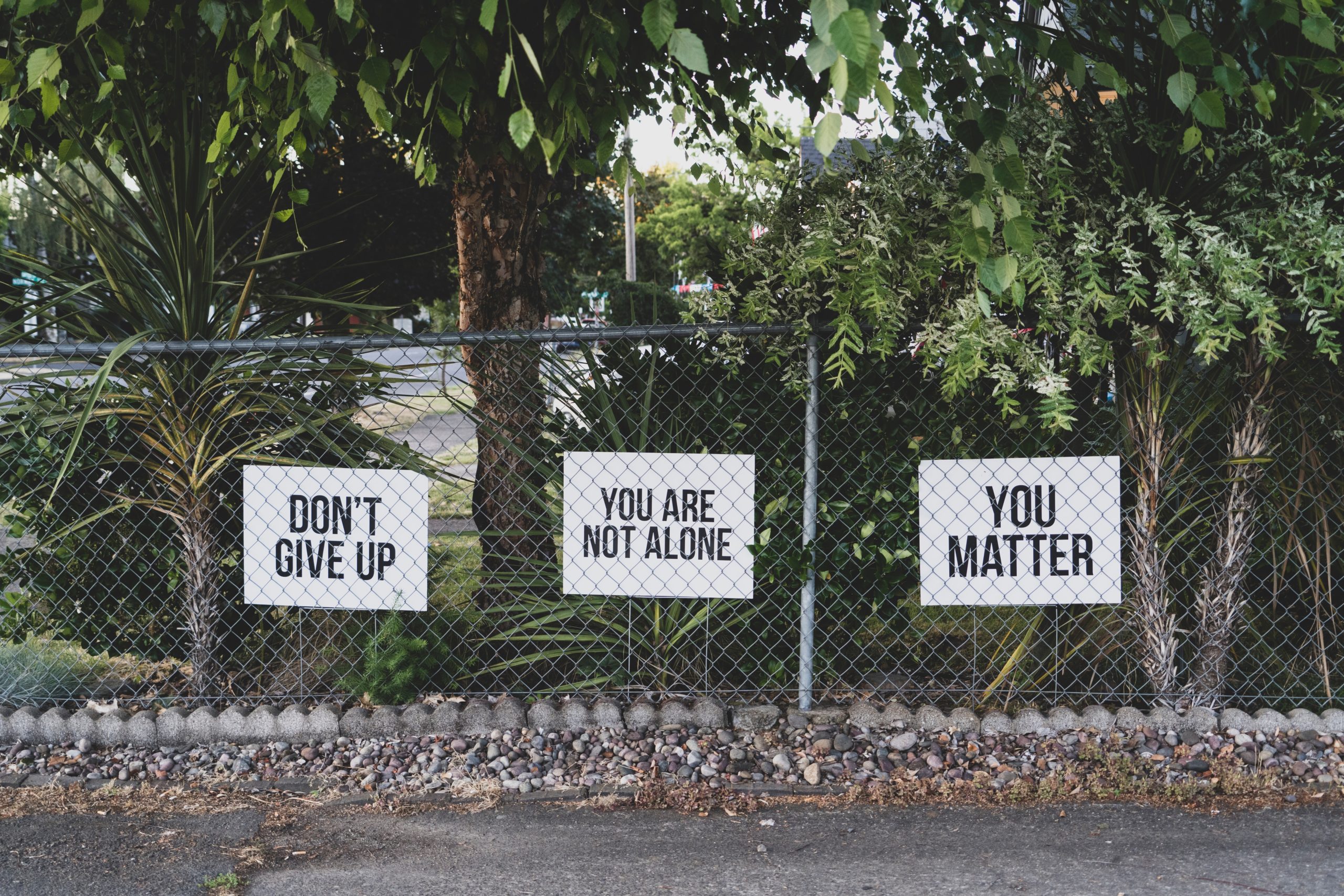Before reading Managing Fear Part 2, read:
DISCOVER THE DIFFERENCE BETWEEN BENEFICIAL AND DESTRUCTIVE FEARS
Fear is natural and it runs the gamut from private fears that no one else knows about, to world-wide issues everyone has on their radar – Covid19, anyone?
Fear can take up a small portion of your daily thought process or it can be your primary focus given the circumstances. You can’t guarantee you won’t experience righteous fear, it’s inevitable, but you can take steps to get fearful thoughts under control.
I would personally say that Covid-19 is a righteous fear. I have a daughter who lives in New York City. Another daughter who has an extremely rare kidney disease and her immune system is compromised. A son who is on immunosuppressants – meaning his immune system is compromised as well. My dad has heart disease – he’s had triple bypass surgery and has a pacemaker. My mom is a 4x cancer survivor and is on cancer #5, currently going through treatment. Am I fearful? You betcha!
Fear is an important warning mechanism our brains use to keep us safe. Some fear is important- even beneficial, while other fears are petty or exceedingly disruptive. Assessing which types of fear has value and banning fears that don’t will help you live a balanced life that isn’t distracted by an abundance of fear.

SOME FEARS ARE BENEFICIAL
Sometimes fears are beneficial. They keep you safe from harm and help regulate risk. Fear can help you assess a situation before taking a plunge into the unknown which can prevent loss – that’s a very good thing! Fear can also motivate you to do the right thing or keep you healthy. Here are some examples of beneficial fears:
- Fear of losing a job
- Fear of losing good health
- Fear of breaking the law
In these cases, fear can motivate you to be on time to work and be accountable for your job. Fear can help you eat better, take supplements and get checkups. Fear helps you drive the speed limit and avoid situations that could land you in jail. It can also help you avoid dangerous situations.

SOME FEARS ARE DESTRUCTIVE
Fears that have no bearing on your immediate safety or directly affect your life can be considered destructive. Focusing on matters outside your control or being distracted by fearful thoughts on a routine basis can be considered unhealthy. Here are some examples of destructive fears:
- Ambiguous fears about conspiracies
- Worst-case scenario fears
- Calamity fears
The difference between beneficial fear and destructive fear generally lies in whether or not an action needs to be taken for immediate safety or to solve a problem. Worrying about getting to work on time is a beneficial fear, whereas worrying about scenarios that don’t exist or you can do nothing about is destructive. Assessing the difference between beneficial and destructive fears helps you take control of what you can manage on your own and set aside fears about things you can’t control or upon which you can make a direct impact.

MANAGING POWERFUL EMOTIONS WHEN YOU ARE AFRAID
Fear is a powerful emotion. Fear manifests as worry in the mind and can express itself physically with digestive issues, difficulty breathing, sweating, and a desire to hide. When you are in the throes of fear the waves of emotions can be overwhelming- even debilitating. Managing these powerful emotions takes effort but it can be done.
Since fear affects the mind, body, and spirit, it makes sense to manage fear in each of these areas. There are actions you can take to manage these powerful feelings- emotionally, physically, and spiritually, so you can cope while you face your fears.
MANAGING POWERFUL EMOTIONS IN YOUR MIND
Fear is expressed by worry and fretting about a clear and present danger as well as perceived threats that may not be immediate. Getting ahold of your thinking can help manage powerful emotions.
Tackle anxiety with meditation- Using breathing techniques, listening to neutral sounds like white noise, sounds of nature, or a healthy mantra can help clear the mind and lessen anxieties and lead to mindfulness.
Tackle fear with knowledge- Most fear is driven by the unknown. Seek to better understand, get new information, or get educated about the issue that’s causing fear. Being informed can help lessen the worry and fear in your mind.

MANAGING POWERFUL EMOTIONS IN YOUR BODY
Your body is tied to your mind and often expresses fear and anxiety in unique ways. Fear can manifest in illnesses and injuries that are based on your thinking rather than your overall health. Getting in touch with your thinking coupled with managing your health can help you manage powerful emotions.
Tackle fear with healthy foods – A poor diet can elevate discomfort when you are managing powerful emotions. Eating high-fat, high-salt, and high-sugar foods when you are emotionally maxed out can make things worse. Eating healthy foods can help you sleep better, have more energy, and remove brain fog.
Tackle fear with self-care – Everyone experiences the physical reaction to fear differently. From aches and pains, to break outs there’s no universal physical reaction to powerful emotions. Finding the right self-care outlet to manage fear can make a big difference. From getting a massage to work out the knots from stress to taking long walks to clear your head and get dopamine flowing through your system, and putting together a self-soothing kit.…self-care can help you regulate when you’re experiencing powerful emotions.

MANAGING POWERFUL EMOTIONS IN YOUR SPIRIT
Your mind, body and spirit are all connected. One always influences the other and the health of one area is usually reflected in another. Managing your mind and body can reduce the effects of powerful emotions, but it’s important to include your spirit as well.
Tackle fear with your perspective – Focusing on yourself can increase your fears. Thinking beyond yourself and looking at the bigger picture can help lessen the powerful emotions. Being in service to others or working towards a community or global goal can manage powerful emotions and give you a focus outside of yourself.
Tackle fear with your mindset – Your spirit is connected to a much larger source than yourself. That source is God. Connecting to God through prayer, can help you shift your mindset from hopelessness and helplessness to being one with a bigger influence. Letting go and letting the enormity of the positive possibilities come into play can help you shift your mindset from overwhelm to peace.

Being afraid causes a ton of stress that is expressed in your mind, body, and spirit. Placing your focus on each of these areas and tackling fear with intentional actions can help you manage these powerful emotions and get them under control.
LIMITING TRIGGERS HELPS MANAGE FEARS
Have you ever paid attention to how much fear you experience and when it happens? Fear doesn’t just jump into our mind. It’s generally triggered by something in our environment that reminds us of a past experience, past worry, or conjures up a fear we never considered before. Something we see, hear, or experience triggers the fear response and we are off to fret and worry about all the things that might happen.
If you tend to be a fearful person, it can be helpful to limit the triggers that cause fear that’s destructive. It’s easier than you might think to insulate yourself from fear-causing triggers and keep your mind clear from worry, anxiety, and overthinking:
Limit your sources of fearful entertainment – Your entertainment triggers your imagination. If you are watching intense television, movies, or listening to intense music it can trigger fear. That crime drama you watch at 10pm might trigger fear and anxiety by the time you go to bed. Limit your sources of fear-triggering entertainment and you can keep your mind clear.
Limit you access to negative people – Who you surround yourself with makes an impact on what triggers your fears. If you find that certain people cause you to feel anxious or scared, limit or cut off access to them. If you notice that every time you engage a certain person or a certain personality type you come away anxious or fearful, it’s an indicator they are triggering fear in your mind. To the extent you can, control how often, where, and what the circumstances are when you engage these types of people.
Limit your access to activities and places that cause fear – Some activities can trigger a fear response. If you have made a connection between an activity and a fearful outcome, you may be triggered into fear each time you engage in a similar activity. Avoiding the activity can lessen the likelihood you are triggered until you can work through the feelings and overcome them.
Triggers are causes that create fear due to an association between the trigger and a negative experience. Limiting the triggers that cause you fear can greatly reduce the frequency and type of fears you have to manage. Becoming aware of what triggers you can be a powerful way to manage fear and reduce its impact on you. Be aware of your triggers and do what you can to avoid them or manage them.
Other things can be triggers…smells, sights, and sounds. Sometimes we don’t know what the trigger is, but once we identify it, we can often strip it of its power.

WHEN YOUR FEAR IS TOO MUCH TO MANAGE
It would be great if fear was easy to manage and keep under control. A lot of times it is but sometimes fears become too much to manage on our own. There’s no shame in that, that’s why there are helpers who can assist in sorting out your fear and help you manage it. There are lots of ways to get support when your fear is too much to manage on your own. Some typical examples are:
- Medication
- Support groups
- Therapy
Let’s take a deeper look at each one
Medication
Medication can be a short or long-term resource for chronic fear. Fear can be expressed many ways. Some typical symptoms of fear might be-
- Anxiety
- Racing/intrusive thoughts
- Depression
- Insomnia

Medication can oftentimes help get symptoms under control while you focus on sorting out the fear. Your physician can help assess your symptoms and determine if medication is a good idea for your unique situation. I don’t recommend antidepressants without also seeing a therapist.
Support groups
Sometimes fear is caused from isolation. Feeling like you are alone in your circumstance can make fear overwhelming and difficult to manage on your own. Support groups can be a wonderful alternative to sorting through your feelings alone. Depending on your situation, there may be a support group that can participate in your journey and help you find community and resources for your specific situation. Support groups are also great additions to taking medication.

Therapy
Therapy is hyper-focused way to tackle your fears. Though fear may be a symptom of a greater underlying problem, it is often the catalyst people have for seeking outside help. You might know exactly why you are fearful, or you may not, it won’t matter. A great therapist can help sort through your symptoms and help you identify what you’re feeling and what path to take to help you overcome.
Sometimes fear takes hold and wears you out. As you get weary your coping skills diminish, and it gets harder to focus on positive things. From world issues, to private issues that you may or may not be able to identify, fear can overpower what’s right in your life and make it hard to be happy. There are therapists out there that can help you manage your fear and get things back on track. There’s no shame in seeking help or plugging into a resource that ultimately will help reduce the level of fear you are experiencing.

DOS AND DON’TS FOR HELPING OTHERS MANAGE FEARS
Supporting someone who’s managing fear takes skill. If someone is frantic or freaking out, your response might be very practical and immediate. If someone is fearful of a violent dog that’s on the loose, you may react differently than you would to someone who is afraid the stock market is going to plummet beyond recovery. One issue is a clear and present danger while the other is a worst-case scenario fear.
We all live in a community. From our families, co-workers, and social circles, we live among people who occasionally….sometimes frequently…feel fear. It’s likely that we will be called to support someone who is trying to manage fear. Here are some practical dos and don’ts for helping others manage fear.

- Do assess and offer a safe space
- Do listen actively without judgment
- Do ask how you can help
Do assess the situation and determine risk: If someone is coming to you with fearful thoughts it’s important to assess if there is imminent danger and whether something needs to happen right away. If there are actions to be taken, help make decisions and take appropriate action. If the issue is not emergent, provide a safe space for listening and helping them sort out their fears.
Do listen actively without judgment: Many fears are irrational and might seem frivolous to you based on your frame of reference or personal experience. As a matter of fact, many people come to their own conclusions that their own fears aren’t rational after sorting them out. Listen without judgement to someone who is managing fear and see if things settle on their own.
Do ask if you can help: You may have all sorts of ideas about what someone can do to alleviate her fears. Before you offer advice, ask how she wants you to help, if at all. You may find she simply wants someone to listen or perhaps she wants advice that you can offer. Base your support on what they want and think will help the most in the moment.

- Don’t diminish fear
- Don’t go into fix-it mode
- Don’t take on the fear
Don’t diminish the feeling of fear or any feeling for that matter: Someone caught in the emotional throws of fear may not be ready to let go of how they feel. Be careful not to diminish the intensity of the fears because it could cause shame or cause someone to shut down. Acknowledge fears and use active listening to reframe the feelings so you’re offering validation.
Don’t try to fix anything: You may have some solid ideas that could help reduce fears, but the person may not be ready. Assess what is being asking for and how and if help is wanted before jumping in. Sometimes fear is a good thing and sitting in the fear motivates important changes. It’s possible rescuing and fixing things might actually make things worse. If advice is wanted, don’t use language like, “you should, would, could….” We have a saying in group therapy. We don’t “should” on each other. And, we take it VERY seriously.
Don’t take on the fear: Resist taking on fears as your own. The situation may be very scary and could even make an impact that is regrettable. Be careful not to take on the fear as well. Try to remain neutral and stay in a position of support and practical, emotional stability.
There will come a time when you’ve got to support someone who is facing fear. These dos and don’ts will help you stay focused, problem solve, and be a healthy person to engage when they need you most.
There will also come a time when you need someone’s help when you’re facing fear and knowing these dos and don’ts will help you to set good solid boundaries.

Fantastic series! Fear seems to be a huge problem right now! I love your tips and advice! I have one fear and I am trying to tackle it right now.. I need to go up in a hot air balloon to fulfill a last wish if my husband’s.. I know I will just have to do it afraid, but your tips and advice will help! Thank you!
A very thought-provoking post! It is so true that information can be so helpful in reducing fear and anxiety. So many great tips! I agree that being aware of what triggers your own fears will help you avoid feeling out of control and anxious.
This is all so important! Good read, fear is no joke
I would guess there are a lot of people who usually have a good balance of healthy fear who have now found themselves struggling with destructive fear thoughts due to everything that is going on in the world today. I hope that they can learn how to control their fears without there being any repercussions.
Just had a discussion with my teen daughter about not being afraid to reach out to people for help. She has sung the national anthem a capella in the crowd at a ball game several times, and is getting ready to solo in a plane. Don’t ask her to make a phone call to strangers, though! Perspective and mindfulness is key!
This is a great post for what’s going on today. I definitely realized worrying about COVID-19 so much was not beneficial, so have limited my news intake about it. That has helped me manage my fears.
I really struggle with helping people who have fear. I have very little fear and I have never had anything bad happen to me so I struggle to understand. This will help me to process it better … thanks!
Your posts on fear are so thorough and thought-provoking. I was just thinking the other day how some fears are helpful and others are destructive. I feel like a good part of my days are spent managing both conscious and subconscious fears. Connecting to God (or Source) has been extremely beneficial. It’s something I need to do on a regular basis to overcome fears I may not even know, on a conscious level, that I have. Keep up the good writing!
I like your tips on the do’s and don’t of helping someone else manage their fear. I’ve actually had to deal with this recently and your post has reassured me in how I dealt with the situation. It was a big ordeal and I knew they needed a professional.
Mindfulness definitely helps me manage my fears and anxiety when they become destructive. As does meditation.
Knowledge is so important to combat fear, and to come to the realization of what is really possible. Thanks for the insight.
You are such a incredible writer. I really love reading all your post.
I’m glad that you included the idea that some fear can be beneficial – we can use it in a positive way to motivate ourselves.
Thank you for openly discussing something we maybe put on the back burner and for giving us strategies on how to help others.
Your post is so thorough and much needed! I love how you also talked about how to deal with someone with fear.
There is such an atmosphere of fear right now. This is such a timely and informative article! Excellent advice!
I agree sometimes our fears can be difficult to overcome, I like how you speak about our bodies, minds and souls are connected, also limiting triggers. I am working on this.
Fantastic advice. I especially love this one… “Limit you access to negative people”. I need to weed my garden a bit in that area.
So much good information on consciously managing fear. Thanks for sharing!
Great job discussing fear.
You’ve gotta love a good dose of motivational fear!
Your posts on fear are excellent. I lived in fear for most of my life. I eventually took steps to face mine and name them and they stepped aside. Trust has been a huge thing for me. The more I trust in the Divine the more I grow and the less fearful I am.